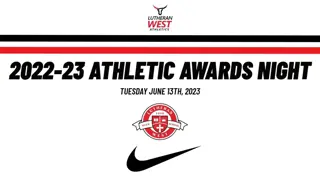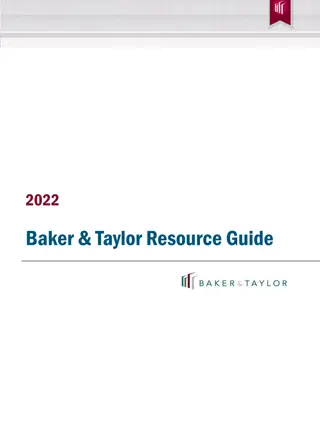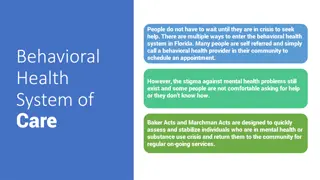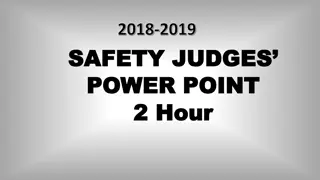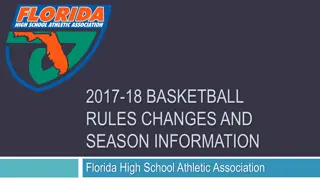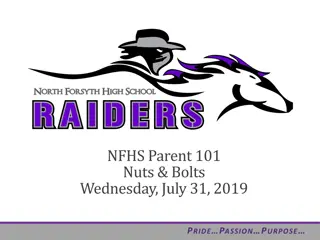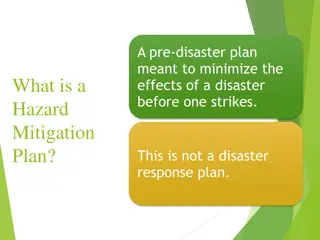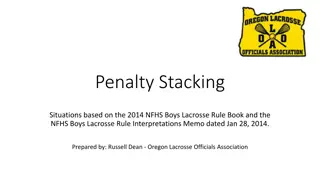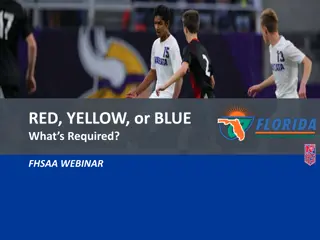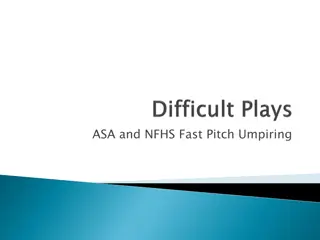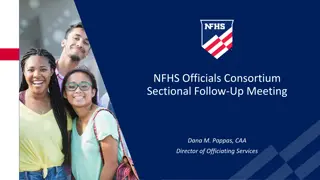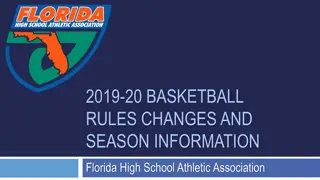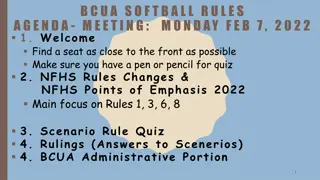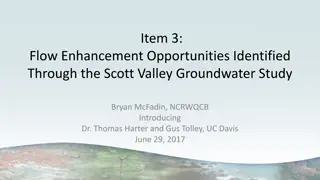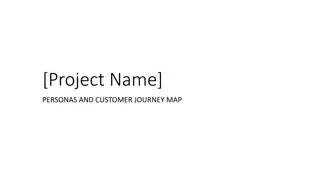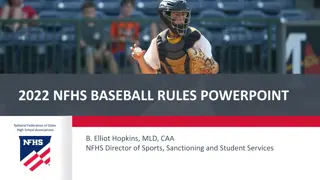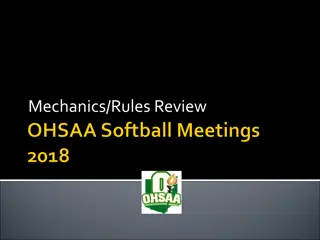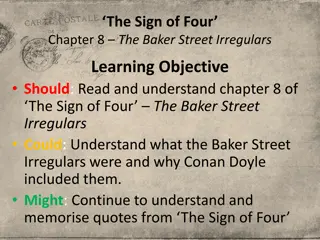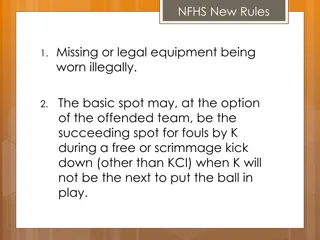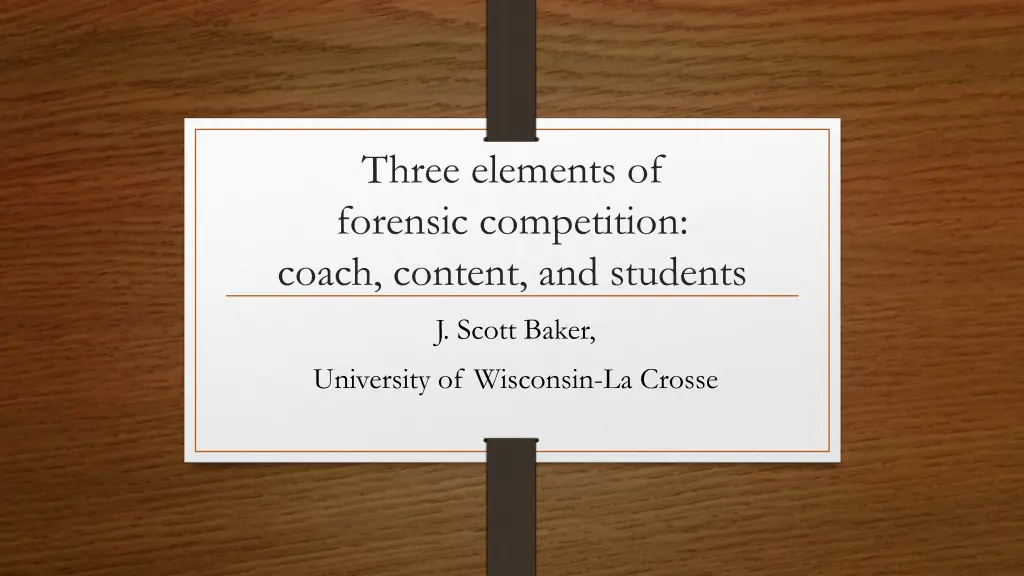
Elements of Forensic Competition and Educational Insights
Exploring the vital components of forensic competition - coach, content, and students, along with educational rationales and impacts. Articles delve into curriculum integration, coach responses, and student benefits from forensic participation, offering valuable insights for educators and competitors alike.
Download Presentation

Please find below an Image/Link to download the presentation.
The content on the website is provided AS IS for your information and personal use only. It may not be sold, licensed, or shared on other websites without obtaining consent from the author. If you encounter any issues during the download, it is possible that the publisher has removed the file from their server.
You are allowed to download the files provided on this website for personal or commercial use, subject to the condition that they are used lawfully. All files are the property of their respective owners.
The content on the website is provided AS IS for your information and personal use only. It may not be sold, licensed, or shared on other websites without obtaining consent from the author.
E N D
Presentation Transcript
Three elements of forensic competition: coach, content, and students J. Scott Baker, University of Wisconsin-La Crosse
Research Rationale Limited prior PURE research: Difficult to explain what we do Difficult to categorize what we do Difficult to speak/write across multi-state organizations
3 Article Format Justification In any educational experience, 3 key factors play into success: student, curriculum, and teacher (in the case of forensics, a coach). Student Teacher/Coach Curriculum All 3 elements are vital to prepare a student for his/her/their future. Experience
Article 1: Curriculum and Forensics Article 1 discusses how forensics plays into a high-stakes testing educational setting. By analyzing current issues around mandated testing, what role does forensics have in the curriculum? The article uses The Wizard of Oz as an analogy to what is happening in schools today
Technicolor Solutions Article 1 describes how forensic participation keeps students involved in school. Forensic participation provides: Dialogue Diversity of Literature Original Thought
Article #2: Lives of Forensic Coaches Reponses from 434 participant speech & debate coaches are used to create a performance ethnography. The scene takes place as if respondents are auditioning for a role. The director brings them on stage to ask questions regarding their lived experiences.
Coach Response Themes Skill sets for students in multiple arenas. Higher level thinking than in other, standardized classrooms. Passion and love for the activity. Social Justice. College Preparedness. Inequality in funding and recognition.
Article 3: Survey of Former Competitors Article 3 attempts to determine individual student benefits for participation in forensics. Using a survey to question participants, the research identifies perceived benefits former competitors feel participation afforded them. 1,050 Responses from 43 states
Diversity The survey focused on diverse alumni populations, since debate is often seen as a White male dominated activity. The survey results are analyzed overall as well as broken down into populations underrepresented in extracurricular activities: Black, Hispanic, LGBTIQ, persons with a disability, and FIT (female, intersex and transgender).
Event Specializations Responses are categorized by debate, public speaking, and oral interpretation event specializations. Since students in these three foci differ in their experiences, are there are any correlations with the different types of specialization in post-secondary benefits for students?
Results for Diverse Populations All diverse classifications: Black, Hispanic, LGBTIQ, persons with a disability, and FIT presented a strong positive attitude regarding experiences. All diverse classifications, except FIT presented a strong positive perceived influence on life post-secondary education. FIT population was significantly different, yet showed a positive perceived influence.
Themes from Diverse Populations Voice: It not only gave me a voice, it taught me how to amplify it in order to speak my respective truths. Family: It helped me find my footing, my family. I made friends and found a home on the speech team. Skills: I learned research and critical thinking skills. Home: being a member of the team made me feel like I had a home within school, a family of peers who were like-minded. Confidence: I have my experiences in high school forensics to thank for the poise and confidence I m consistently able to project. Friendship: I am now 67 years old and several of my closest friends are people I first met in HS forensics.
Results for Event Preferences All classifications of event preferences: debate, public speaking, and oral interpretation showed a strong positive attitude regarding experience. All classifications of event preferences: debate, public speaking, and oral interpretation showed a strong positive perceived influence on life post- secondary education. Themes were not evaluated by event preference.
Coach Participants 434 Total Coach Participants: (1) Texas: (2) Kansas: (3) Nebraska: (4) Illinois: 64 (5) California: 17 57 (6) Colorado: 16 47 (7) North Dakota: 15 28 (7) Wisconsin: 15
Alumni Participants 1,050 Total Alumni Participants: (1) Texas: (2) Kansas: (3) Oklahoma: (4) California: (4) Missouri: 229 142 58 47 47 (6) (7) (8) (9) (10) CO/FL: Wisconsin: Nebraska: Minnesota: Indiana: 45 36 35 33 29
Data Distribution #1 If You Don't Believe the Teachers, Ask Students about Benefits of Speech & Debate Texas Speech Communication Journal, focuses on responses of Texas alumni. Are our best advocates not fully advocating for us? Rostrum, focuses on alumni influence S&D has on students WHILE in High School.
Data Distribution # 2 Interpreting Poetic Inquiry: Authenticity realized from alumni performers' narratives Journal of Curriculum & Pedagogy, focuses on OI preferred alumni. Title I Alumni: Perceived Influence of Speech & Debate programs while in High School AERA conference (Spring 2017), focuses on alumni from Title I schools.
Data Distribution # 3 A Candid Conversation about Speech & Debate Coaches High School Today, rejected for length and point of view, submitting to Principal Leadership Oct 2016, focuses on Texas alumni Confidently Speaking about Experiences UIL Leaguer, focuses on confidence in Texas alumni.
Data Distribution # 4 An Educational Play: The Lives of Speech & Debate Coaches Reader s Theater workshop at Texas Speech Communication Association in Oct 2016, presentation of Article 2 play on coach experiences. To Be Named: Event Preferences Rostrum, submit Oct 2016, focuses on event preferences of alumni.
Where Do We Go From Here? Ideas, places you want to see data distributed for your state, etc. Email: jscottbaker01@gmail.com

